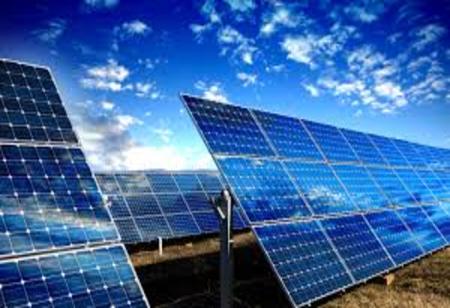The discourse over climate change is finally getting its much deserved attention as media houses focuses on the disadvantages of using fossil fuels. Renewable energy is gaining more importance, not only in the developed countries but also in developing countries like India. Among the various renewable energy sources available to us, it is solar energy which has the highest potential to tap into in India. It is due to the fact that India is located in close proximity to the equator and therefore receives ample amount of sunlight throughout the year.
According to the Indian Ministry of New and Renewable Energy (MNRE), India increased its solar energy capacity by 83 percent in the year 2017 which is equivalent to 5,556 MW. It is not surprising to discover that change- makers in India’s solar energy business ecosystem have been led by startups and entrepreneurs. According to market reports Indian startups are constantly waging funding wars against each other to get a hold over this particular business space.
In Urban and Rural India, there are millions of homes which have rooftops that receive plenty amount of sunlight. These houses are ideal for harnessing solar energy by converting it into electrical energy.Solar energy has established itself as the technology of choice for new power generation. India’s recent status as the lowest-cost producer of solar power further reflects the ongoing shift as solar power to be the driving force of global energy transformation. Recent research conducted by IRENA has revealed that the cost of setting up solar panels in India has reduced up to 80 percent between 2010 and 2019. India has come to realize that it is cheaper to be building solar farms than to run existing coal-fired plants.
The government of India had come to realize this potential back in 2010 itself, and had adopted a series of measures to ensure growth in this segment. This in turn helped the solar power industry to thrive in a short period of time, making India the cheapest producer of solar power. In 2010, the total installed solar power capacity stood at 10MW, and in 2016 the total capacity increased up to a whooping 600MW – a steep increase of 600 percent within a short span of 6 years. By March 2019, India was producing 30GW of solar energy.
The growth of the sector can be attributed to the following factors:-
• The role played by the government:
The government of India had formed two specialized body, The Ministry of New and Renewable Energy (MNRE) and The Solar Energy Corporation of India (SECI) back in the year 2010. These two bodies have played a pivotal role in helping India become one of the fastest adopter of solar energy. When the National Solar Mission was launched back in 2010, the cost of solar power was INR 17 per unit watt which has been Successfully reduced to just INR 2.44 per unit.
• Policies and Incentives:
The subsidies and incentives provided by the government of India with collaboration with The National Solar Mission since 2010 have been instrumental in the adoption of solar energy. The government has provided subsidies up to 30 percent for all rooftop solar projects, tax breaks to the startups during their initial years of operations, custom and excise duty benefits have propelled the solar energy startup sector to grow at a fast rate.
• Low cost of labor:
Construction of a solar power plant requires around 30-40 percent highly skilled manpower while the rest are semi-skilled or unskilled labor, easily available at very low costs. India has one of the lowest costs of labor allowing the startups working in this industry to employ large number of people which results in speedy completion of the projects at very low costs. The solar industries have not only utilized his fact to their advantage but also create ample job openings in the process.
• Price sensitive market:
The price sensitivity of key components such as solar panels, inverters, junction boxes and similar equipments at a competitive price much lower than other countries helped India reach lower solar tariffs.
Since, India is a growing economy; power consumption is bound to increase. Adoption of alternate forms of energy is the only way forward to balance between economic growth and sustainable development. Given the scope solar energy has in India, startups – based on their unique ideas, social/economic impact, funding – have a promising future in this space.
